In light of global strides to bolster sustainable agricultural practices in response to increasing environmental challenges, Guyanese farmers can benefit from greater access to information and training given the country isn’t immune to these challenges.
Recently, there have been discussions about how Guyanese farmers can be greater supported to strengthen their resilience against the devastating natural disasters associated with climate change like more intense flooding events.
However, the conversations have also extended to assisting farmers to adopt practices like proper waste management which aids Guyana’s carbon mitigation efforts.
Recognising farming is a multifaceted endeavour, and each practice is widely important and linked to the others, can assist in robust strategies being developed to guide and support farmers to better understand how they carry about their work in a changing climate.
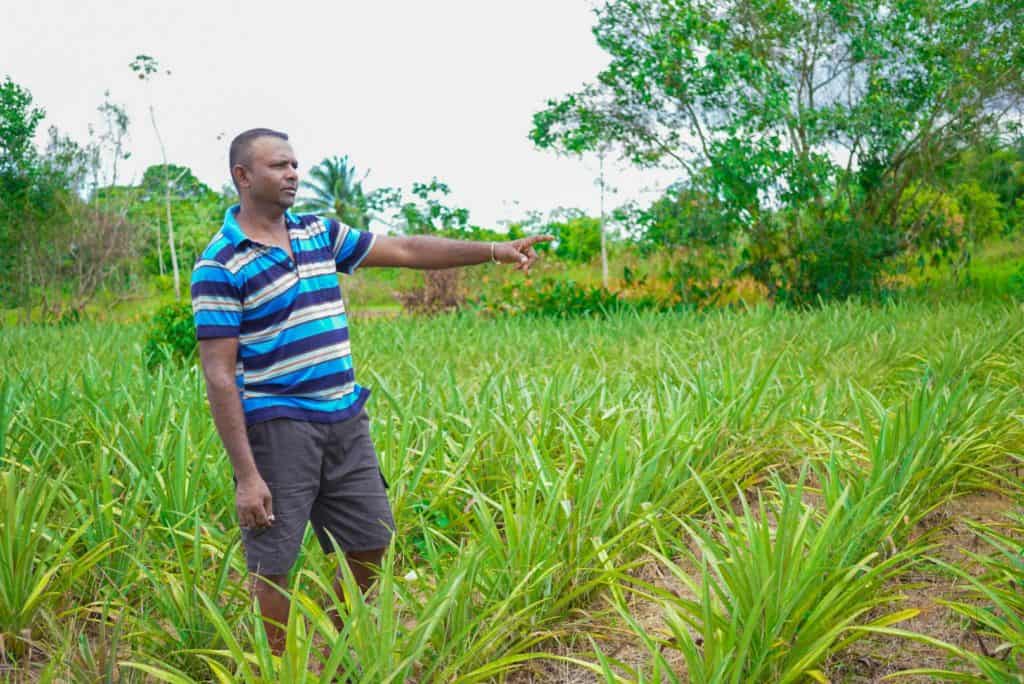
Tackling the Issue
Totaram Deosarran, a pineapple farmer for over two decades believes there is great hope for an approach to farming that’s focused more on preservation and conservation, with assistance from the relevant authorities.
“We are open to trying new things. If we are provided with an organic substitute to the fertilisers we use and the trees can benefit, then we’re good.”
Deosarran said that due to time constraints, farmers who engage in pineapple cropping are highly dependent on the use of chemical fertilisers to boost their production
“Pineapples are not like cash crops, it takes 18 months to two years to process. If the organic products run out, what are our alternatives? You have to get something to boost it and keep it running. The chicken manure (pen manure) can work on the pineapple but then the manure breeds fungus and pests that pineapples cannot survive.”
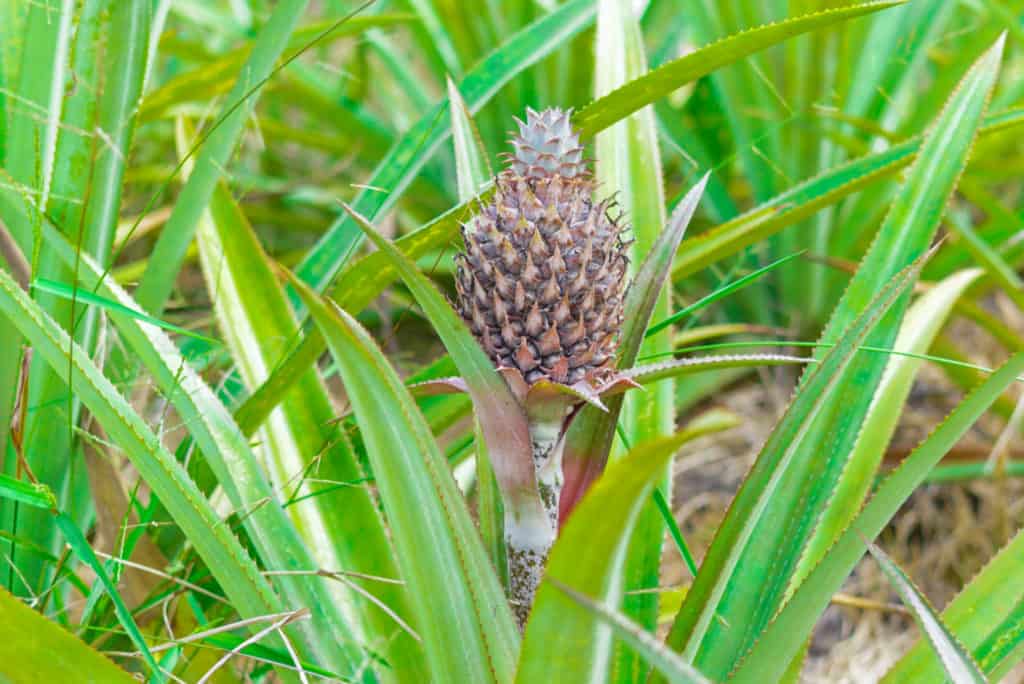
He went on to explain that organic farming comes at a cost. To choose organic alternatives means sacrificing funds for labour and other items on the budget in order to make a profit at the end.
“The soil we have here is not the best and it’s impacted by flooding. We cannot rely on organic products because to maintain, we will count our losses.
Deosarran also made it clear that although farmers do have concern for the environment, it is more costly, in Guyana, to pursue sustainable waste management and other sustainable farming practices.
“We used to spray the waste pine after reaping, with gramoxone and then we would burn it.”
An old practice that’s still very popular among Caribbean farmers.
“But we try to avoid stronger chemicals and when we burn the land, we replant it,” he shared, showing the ash on the ground that he says contributed to pineapple production.
A report from the Intergovernmental Panel on Climate Change finds that about 30% of global emissions leading to climate change are attributable to agricultural activities, including pesticide use.
Hope for sustainable farming in Guyana
Luckily this is not the same situation for five-year crop farmer, Milton Lewis of La Grange, West Bank Demerara. Through education and research Lewis was able to make his own ‘Fish Hydrolysate’ fertiliser and adapt to other homemade measures that he has now implemented for use on his farm.
“With fish Hydrolysate, you get the whole fish, blend it up and you mix it with the molasses and the lactic acid.I tried that, because as they said it is the best for your garden. I planted some boulanger, I sprayed some lactic acid on the leaf and ground when it was small, every two weeks, I threw some limestone and no fertiliser so far and you can see it is getting good nitrogen from how it is growing.”
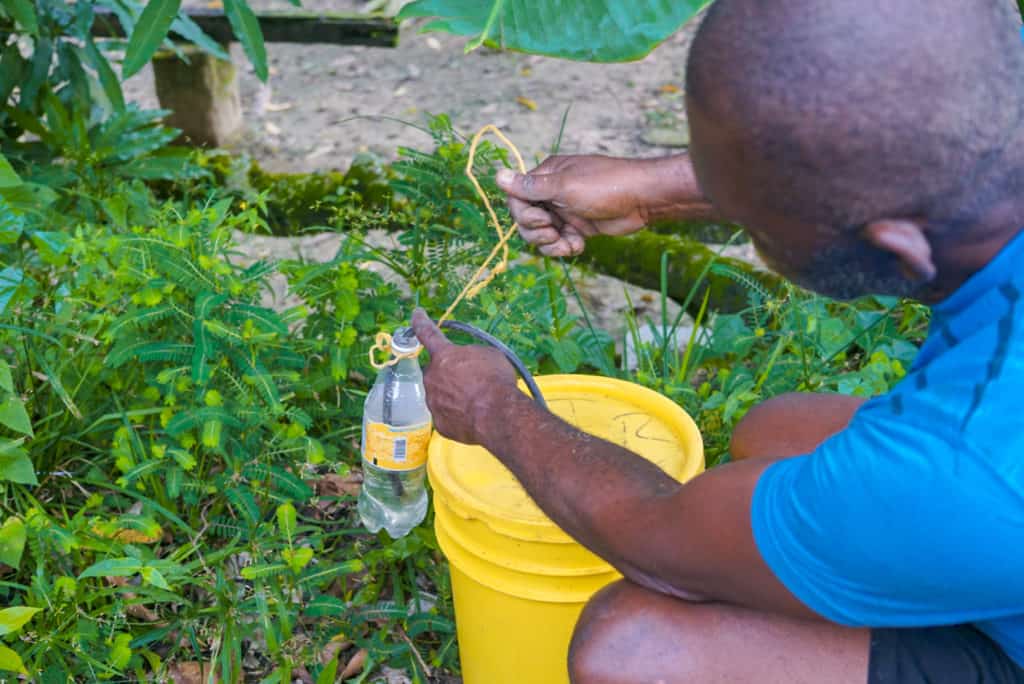
In full support of natural remedies and modifications, Lewis said “I believe the fish Hydrolysate fertiliser is good and more cost-effective to produce.”
“You get a barrel and you take all your waste scrap, grass or green material, throw it inside water and cover it down and leave it there. With composting, you have to put a lot of labor in it, because if you want to make a compost pile, you have to turn it or else it will get clammy. The fastest you can get is in 18 days but you have to turn it every day. Composting is great but it’s more labor and time.”
In his opinion, Lewis added, “In certain areas in this country it has been neglected from support from the Ministry of Agriculture. Most farmers do not really need financial support, it is just guidance. There are a whole lot of people going into farming and they do not know what they are doing.”
Giving a guide to the steps of making the fertiliser a reality, Lewis gave details that it is a simple one month process.
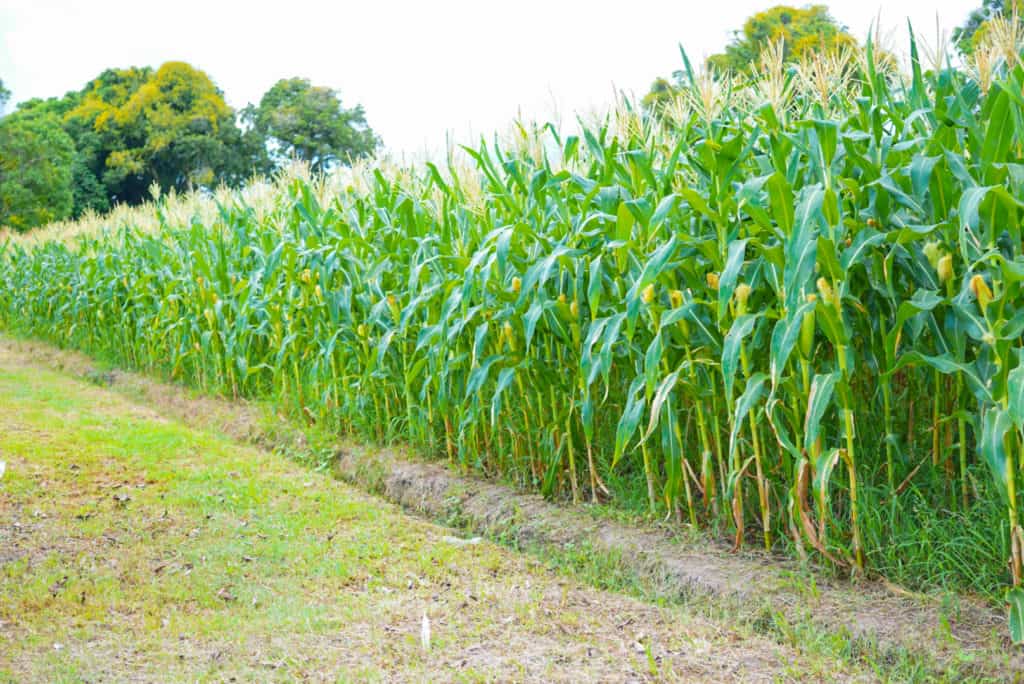
Lewis explained, “You use some rice water and leave it for approximately five days. You could smell and you will know when it is ready, it will start to smell sweet. The settlement at the top of the liquid you take off and you save the rest. You can put it in the fridge to keep it cool.
“Now with that you could mix it with powdered milk because that is lactic, cover it in a breathable container and it will start to ferment and then again you remove the settlement at the top and the bottom of the liquid will get clear and the lactic acid is made.
“Then you take fish; guts, scale head, any part of the fish, throw it in a blender and blend it up with two litres of water, one pint of molasses and about a litre of lactic acid, all stirred in a breathable container, close it and the fermenting process starts.”
Lewis lamented farmers play a pivotal role in Guyana’s economy and provide many essential services which makes it all the more important that they are edified on common issues that can be remedied before a greater onset of environmental challenges.
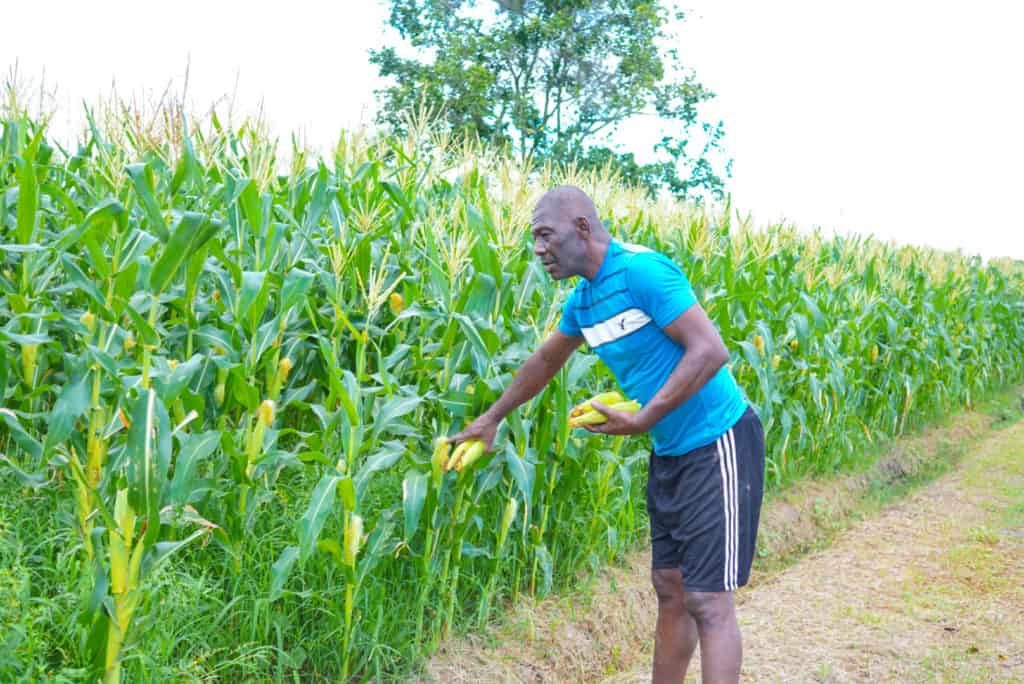
With the implementation of climate smart agriculture, we will be able to address food insecurities and climate change. Emphasis on integrated grassroot crop cultivation across Guyana must be mobilised, as some crop types are more vulnerable than others against the challenges of climate change and will need specialised attention.
This story was published with the support of The Cropper Foundation and Climate Tracker’s Caribbean Citizen Climate Journalism Fellowship





